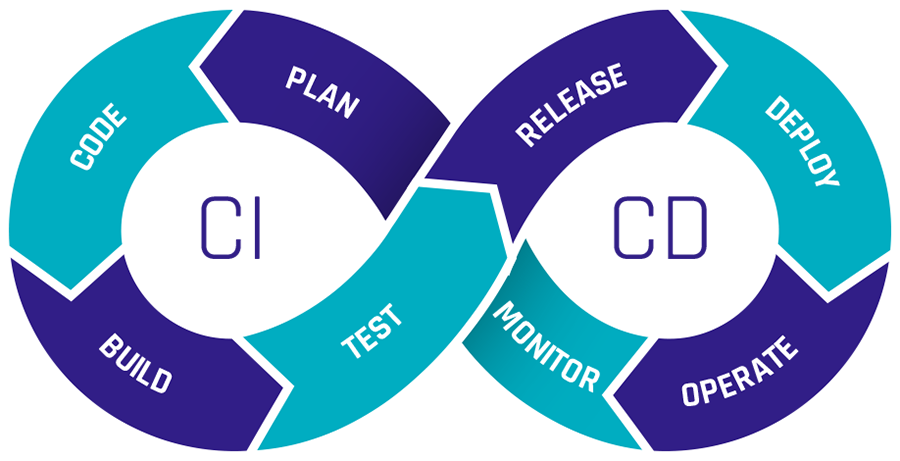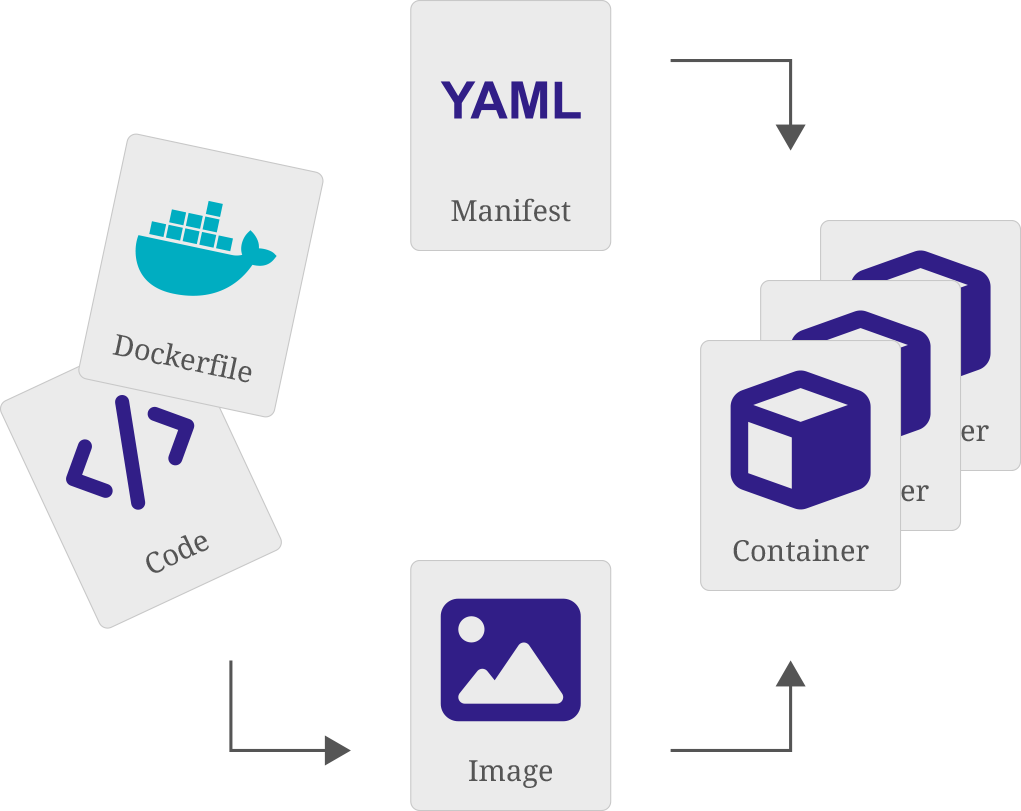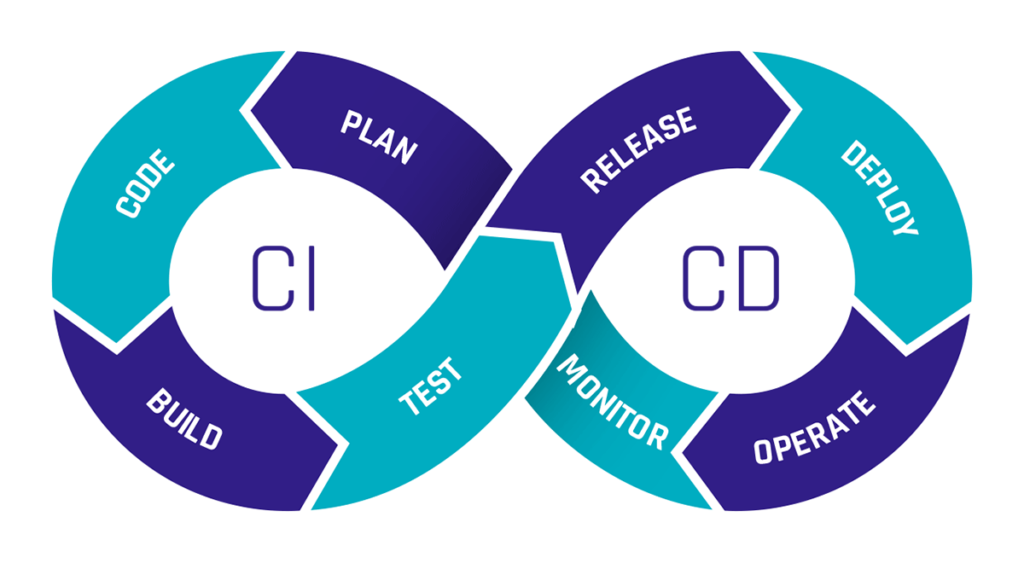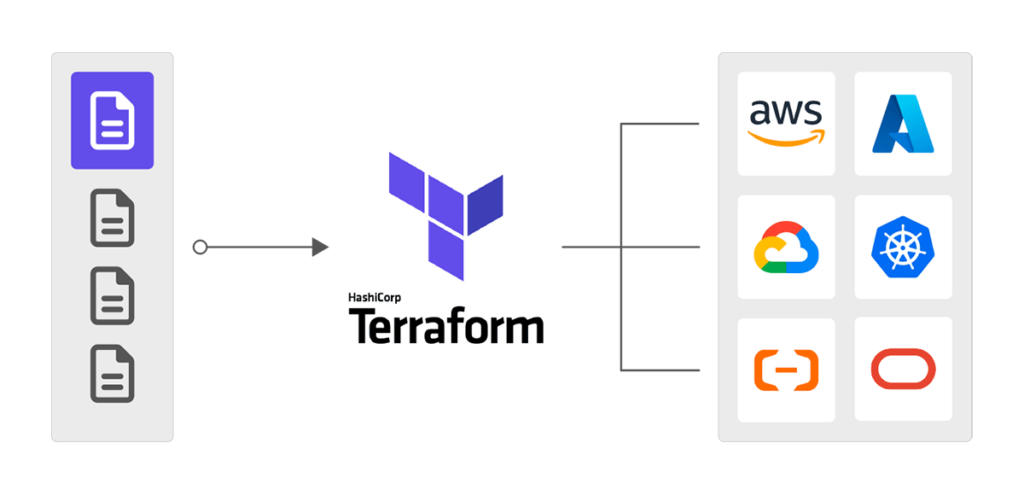DevOps empowers you to swiftly respond to customer feedback and adapt to changes,
enabling agility in project plans or priorities.
Initial Meeting on Us
DevOps Overview
DevOps is a set of practices and tools to improve collaboration and productivity throughout the software development lifecycle. It combines software development (Dev) and IT operations (Ops).
At Scalefree, we live in DevOps culture and work together with our cloud partners AWS, Azure, and GCP. We offer services that enhance and automate your cloud integration and migration process to the private, public, or hybrid cloud model.
AWS, Azure, and GCP are the most popular cloud providers, which offer a lot of services like virtual machines, storage, databases, and much more. Minimize the maintenance costs with serverless features and let it handle the provider for you.
Some benefits of building your infrastructure with those cloud computing providers are:
- Speed & Agility
- Reliability
- Security
- Scalability
- On-demand pricing
At Scalefree, we can help you build, migrate, or improve your cloud infrastructure. But not only that, cloud computing offers a lot of tools to automate your existing environment, combining cloud with DevOps practices.

Continuous integration (CI) and Continuous delivery (CD) are fundamental for DevOps. It enhances the development cycle by reducing costs and increasing efficiency.
With CI, you automatically integrate code changes from multiple contributors into a shared repository. The primary goal of CI is to detect and address integration issues early in the development process ensuring a more stable and reliable codebase.
CD extends CI to reliably deliver and deploy software to production or staging environments. The goal is to release software more frequently.
At Scalefree, we can assist in the creation of CI/CD pipelines for your environment to automate your deployment lifecycle and increase efficiency in your business.

The concept of IaC is to treat infrastructure configurations in the same way as software code. It enables automation and standardizes the process of provisioning and managing infrastructure, making it more efficient, scalable, and less error-prone.
Three valuable key aspects of IaC:
Self-Service Provisioning
- This empowers teams to quickly respond to changing business requirements without relying on IT support, leading to increased agility and responsiveness
Automation and Orchestration
- Streamline workflows, reduce manual errors and ensure that applications and services can be deployed consistently and reliably.
Compliance and Security
- Minimizes the risk of non-compliance and potential legal consequences.
We can help you to switch to IaC and automate the deployment of your infrastructure.

Improve your software development lifecycle by containerizing your applications and their dependencies in an isolated environment. Containers provide a portable and consistent execution environment across different systems. This helps to automate and accelerate the continuous integration and deployment of the product.
Various tools in the cloud, such as Kubernetes, help to manage and orchestrate the deployment and scaling of multiple containers ensuring high availability and scalability of the product. Though containerization can be a tricky process for an existing system.
At Scalefree we can assist you on the journey to improve your lifecycle by setting up the needed requirements to containerize your applications.

To ensure quality after testing an implementation, you have to analyze your software first. Active monitoring helps you find early warnings or errors that can be found in the production. This could be implemented by taking advantage of several cloud services, which offers a lot of tools to create an individual dashboard for your parameters.
A good overview about costs and alerting systems are key for cost efficiency. Monitor your services with standardized tags. With the following steps you can improve your cost sensibility.
- Define
- Visualize
- Notify
- Review
Scalefree helps you to create your customizable dashboard to monitor important aspects of your infrastructure.

DevOps Knowledge
DevOps Consultants
Frequently Asked Questions
What benefits can DevOps bring to my business?
Through DevOps, you can achieve shorter development cycles, improve the collaboration between your departments, improve the quality of your software, and fasten up the product time-to-market.
Can the performance improvement through DevOps be measured?
It can be measured with metrics such as lead time, deployment frequency, mean time to recovery, change failure rate, availability, error rate, infrastructure scalability, customer satisfaction, resource utilization, and automated test coverage, providing insights into speed, reliability, and quality throughout the software development lifecycle.
How does DevOps support the security of my product?
DevOps supports the security of your product by integrating security practices throughout the software development lifecycle and automating security measures to identify and address vulnerabilities early in the process.
What is the advantage of Infrastructure as Code?
The advantage of Infrastructure as Code lies in its ability to manage and automate infrastructure deployment through code, facilitating consistent, repeatable, and scalable provisioning of resources while enabling version control and documentation, leading to greater efficiency and reliability in IT operations.
How can the collaboration between departments be improved with DevOps?
DevOps improves collaboration between departments by breaking down silos, fostering shared responsibilities, promoting transparent communication, and integrating collaborative tools, creating a culture of cross-functional teamwork that enhances efficiency and innovation in the software development and operations processes.
What are the core elements of DevOps?
The core elements of DevOps include continuous integration, continuous delivery/deployment, automation, collaboration, monitoring, and feedback, fostering a culture and practice that emphasizes streamlined, efficient, and iterative software development and delivery processes.
How can DevOps automation benefit my company?
DevOps automation benefits the company by reducing manual errors, accelerating development and deployment cycles, improving consistency in infrastructure management, and enabling quicker response to changes, ultimately enhancing efficiency, reliability, and agility in the software development and operations workflow.
How can your consultants support our teams in their projects?
Our consultants support teams by providing expertise in implementing DevOps practices and cloud technologies, offering guidance on automation, continuous integration, infrastructure as code, and optimizing workflows, ultimately helping teams enhance efficiency, collaboration, and the successful adoption of cloud-based solutions in their Project Consulting.
How can our company benefit from a Continuous Integration/Continuous Deployment (CI/CD) Pipeline?
Implementing a Continuous Integration/Continuous Deployment (CI/CD) pipeline can benefit your company by automating and accelerating the software development lifecycle, ensuring faster and more reliable delivery of software updates, reducing manual errors, and enhancing overall efficiency in the deployment process. This approach leads to quicker time-to-market, improved collaboration, and increased responsiveness to changing business requirements.
Can DevOps improve projects that are already in development?
Yes, DevOps can improve projects already in development by introducing practices such as continuous integration, automated testing, and deployment, streamlining collaboration between development and operations teams, and fostering a culture of continuous improvement, resulting in faster delivery, reduced risks, and enhanced quality of software releases.

Saroj Tripathi
Senior Consultant
Phone: +49 511 87989342
Mobile: +49 160 99679024
Free Initial Consultation



